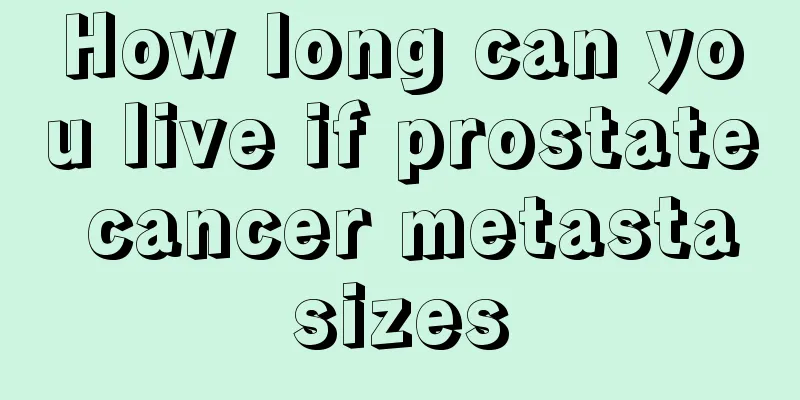I woke up in the middle of the night because of heart discomfort

|
If you are woken up by heart discomfort while sleeping, you must be very careful because it may be caused by heart failure. If symptoms of heart failure appear and are not treated and handled in time, it may even have a certain impact on the patient's life safety. Below, the specific symptoms of heart failure will be introduced in detail. 1. Acute heart failure (1) Early manifestations Early signs of reduced left heart function are fatigue, significantly reduced exercise tolerance, and a heart rate increase of 15 to 20 beats per minute in people with normal heart function, followed by exertional dyspnea, paroxysmal nocturnal dyspnea, and high-pillow sleep. Examination may reveal left ventricular enlargement, early or mid-diastolic gallop rhythm, and moist rales, dry rales, and wheezing at the bases of both lungs. (2) Acute pulmonary edema The onset is acute and the condition can rapidly develop into a critical state. Sudden severe dyspnea, orthopnea, wheezing, irritability and fear, with a respiratory rate of 30 to 50 times per minute; frequent coughing and spitting up large amounts of pink foamy sputum; rapid heart rate, with a gallop rhythm often audible at the apex of the heart; both lungs are filled with moist rales and wheezing. (3) Cardiogenic shock 1) Hypotension persists for more than 30 minutes, with systolic blood pressure dropping below 90 mmHg, or systolic blood pressure drops by ≥60 mmHg in patients with pre-existing hypertension. 2) Tissue hypoperfusion state: ① The skin is cold, pale and cyanotic with purple streaks; ② Tachycardia>110 beats/min; ③ The urine volume is significantly reduced (<20ml/h), or even anuria; ④ Consciousness disorder, often with irritability, agitation, anxiety, fear and a sense of impending death; Systolic blood pressure is lower than 70mmHg, and depression symptoms may occur, gradually developing into confusion or even coma. 3) Hemodynamic disorder: PCWP ≥ 18 mmHg, cardiac output index (CI) ≤ 36.7 ml/s·m (≤ 2.2 L/min·m). 4) Metabolic acidosis and hypoxemia 2. Chronic heart failure (1) Symptoms and signs of left heart failure Most patients with left ventricular failure seek medical attention because of decreased exercise tolerance, dyspnea, or fatigue, which can occur at rest or during exercise. The same patient may have multiple diseases. Dyspnea is the most common symptom of left heart failure and can manifest itself in various forms, including exertional dyspnea, orthopnea, and paroxysmal nocturnal dyspnea. Decreased exercise endurance and fatigue are manifestations of insufficient blood supply to skeletal muscles. Patients with severe heart failure may experience Cheyne-Stokes respiration, which indicates a poor prognosis. In addition to the existing signs of heart disease, physical examination may also reveal enlarged left ventricle, alternating strong and weak pulses, and rales in the lungs can be heard by auscultation. (2) Symptoms and signs of right heart failure The main manifestations are changes in organ function caused by chronic and persistent congestion. Patients may experience abdominal or leg edema and seek medical treatment as the primary or only symptom. Impairment of exercise tolerance occurs gradually and may not attract the attention of patients unless they are carefully asked about changes in their daily living ability. In addition to the existing signs of heart disease, physical examination may also reveal an enlarged heart, distended jugular veins, enlarged and tender liver, cyanosis, dependent edema, and pleural and abdominal effusions. (3) Symptoms and signs of diastolic heart failure Diastolic heart failure refers to the condition in which the ventricular systolic function is normal (LVEF>40%~50%), but the ventricular relaxation and compliance are reduced, resulting in reduced ventricular filling volume and increased filling pressure, leading to congestion in the pulmonary circulation and systemic circulation. The initial symptoms are not obvious, but as the disease progresses, decreased exercise tolerance, shortness of breath, and pulmonary edema may occur. 3. Daily care 1. Patients with more serious illnesses should sleep in a semi-recumbent or sitting position. 2. Limit physical activity. Patients with severe heart failure should mainly rest in bed. After heart function improves, they should get out of bed and move around appropriately to avoid lower limb thrombosis and lung infection. 3. Be sure to quit smoking and drinking, maintain a balanced mentality, and ensure adequate sleep. 4. Eat small meals frequently and follow a low-salt diet. The daily salt intake should not exceed 5 grams. 5. Take medicine as prescribed by the doctor; prevent respiratory tract infections; women of childbearing age should take good contraceptive measures. |
<<: I woke up suddenly in the middle of the night with my heart beating faster
>>: Always wake up in the middle of the night
Recommend
Prevention and treatment of tuberculosis
Regarding the prevention of infectious diseases, ...
Can I get pregnant after radiotherapy for esophageal cancer
Esophageal cancer is a very common malignant tumo...
Can people with nasopharyngeal cancer eat snakehead fish?
The dietary care of nasopharyngeal cancer patient...
How to use the fascia ball
When it comes to fascia ball, everyone is familia...
What medicine should I take if I am infected with Norovirus
Norovirus is a very common virus and is also a vi...
Is gastric cancer with liver metastasis contagious?
Is gastric cancer with liver metastasis contagiou...
How to treat hepatitis B virus (HBV) with antiviral therapy?
Hepatitis B has become one of the diseases that s...
How to use hair clay to grab hair
Many young people want to have a cool hairstyle, ...
What are the dangers of chemotherapy for small cell lung cancer
What are the hazards of chemotherapy for small ce...
The difference between gastroscopy and barium meal is this
As we all know, MSG and barium meal are both meth...
Symptoms of foot neuralgia
The nerves of the foot joints are the more import...
How to care for dentures
It is said that toothache is not a disease but it...
What is the normal value of alpha-fetoprotein quantitative? These ranges are normal
The normal quantitative value of alpha-fetoprotei...
What are the methods for making popsicle sticks by hand?
The so-called popsicle is actually the ice cream ...
Things to note when using tampons and sanitary napkins
During the menstrual period, you need to pay spec...









